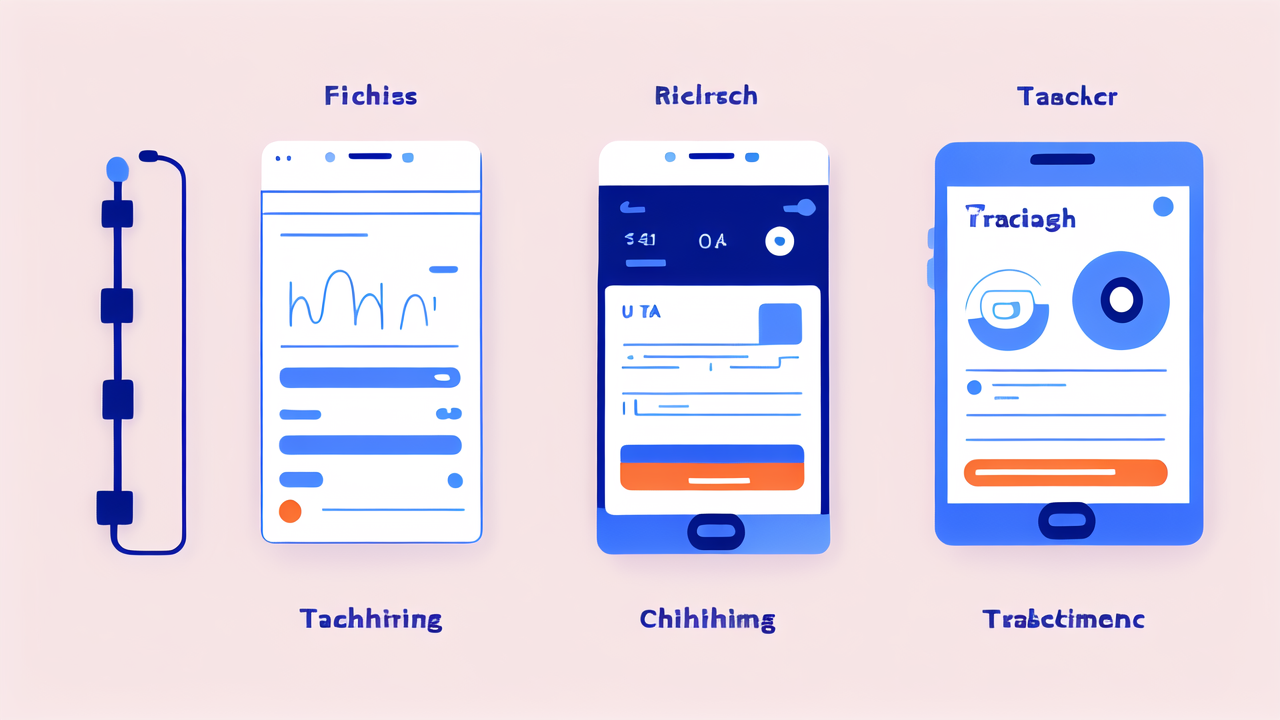The Evolution of Wearable Fitness Technology in the United States
Pioneering Smart Watches and Their Impact on Health
Smart watches have revolutionized the way we track our health and fitness. These devices started as simple step counters but have evolved into powerful health tools. They now monitor heart rate, sleep patterns, and even stress levels. Many Americans use smart watches to set fitness goals and track their progress. These devices have made people more aware of their daily activity levels and overall health. Some smart watches can even detect falls and call for help in emergencies. This feature has been particularly useful for older adults. As technology improves, smart watches are becoming more accurate and user-friendly.

The Rise of Wearable Heart Monitoring Patches
Wearable heart monitoring patches are a newer trend in health tech. These small, adhesive devices stick directly to the skin. They provide continuous heart monitoring without the bulk of traditional equipment. These patches can detect irregular heartbeats and other cardiac issues. They're especially helpful for people with known heart conditions. Doctors can use the data from these patches to make better treatment decisions. Some patches can even alert users to potential heart problems before they become serious. This technology is making it easier for people to manage their heart health at home.
Integrating AI and Machine Learning in Wearable Devices
AI and machine learning are making wearable devices smarter. These technologies can analyze large amounts of health data quickly. This helps devices provide more personalized health insights. For example, AI can predict potential health issues based on a user's data patterns. Machine learning algorithms can also improve the accuracy of fitness tracking over time. Some devices now offer AI-powered coaching to help users reach their fitness goals. As these technologies advance, wearable devices will become even more valuable for managing health.
Regulatory and Ethical Considerations for Wearable Health Tech
Understanding FDA Regulations for Health Monitoring Devices
The FDA plays a crucial role in regulating health monitoring devices. They ensure these devices are safe and effective for consumer use. The FDA has different classifications for wearable health tech. Some devices, like basic fitness trackers, fall under general wellness products. These have less strict regulations. However, devices that claim to diagnose or treat medical conditions face more scrutiny. The FDA requires clinical trials for these devices to prove their effectiveness. They also monitor the marketing claims made by device manufacturers. As wearable tech becomes more advanced, the FDA continues to update its guidelines.

The Ethical Implications of Wearable Health Data
The collection of health data by wearable devices raises important ethical questions. Privacy is a major concern. Users worry about who has access to their health information. There are also concerns about data security and potential breaches. Another ethical issue is the accuracy of the data collected. Inaccurate data could lead to wrong health decisions. There's also the question of how insurance companies might use this data. Some worry that health data could be used to deny coverage or raise premiums. As wearable tech becomes more common, these ethical debates will continue.
The Future of Wearable Tech in Healthcare
Innovations on the Horizon: What's Next for Smart Watches?
Smart watches are set to become even more advanced in the future. We can expect to see new sensors that can measure more health metrics. For example, some companies are working on glucose monitoring for diabetics. Others are developing ways to measure blood pressure without a cuff. Future smart watches might also be able to detect early signs of diseases like Parkinson's. We may see more integration with other health devices and apps. This could create a more comprehensive health monitoring system. As battery life improves, these devices will be able to track health data for longer periods.

The Role of Wearable Tech in Preventive Healthcare
Wearable tech is becoming a key tool in preventive healthcare. These devices can help detect health issues early, before they become serious. For example, some devices can now detect atrial fibrillation, a heart rhythm disorder. Early detection can lead to faster treatment and better outcomes. Wearable tech also encourages healthy behaviors. It can remind users to move more, drink water, or get enough sleep. This technology is helping shift healthcare from reactive to proactive. In the future, wearable data might even help predict and prevent certain health conditions.
Collaborations and Partnerships Shaping the Industry
The wearable tech industry is being shaped by collaborations across different sectors. Tech companies are partnering with healthcare providers to improve their devices. These partnerships help ensure that wearable tech meets real medical needs. Some companies are working with research institutions to study the long-term impacts of wearable tech. Insurance companies are also getting involved. Some offer incentives for using wearable devices to improve health. These collaborations are driving innovation and making wearable tech more useful for healthcare. As more industries get involved, we can expect to see even more advances in this field.




Leave a comment
This site is protected by hCaptcha and the hCaptcha Privacy Policy and Terms of Service apply.